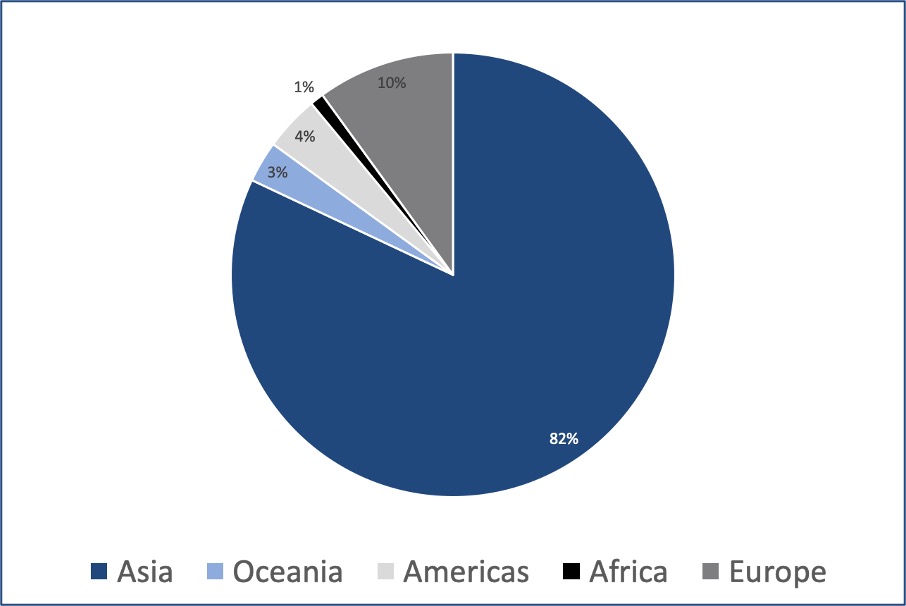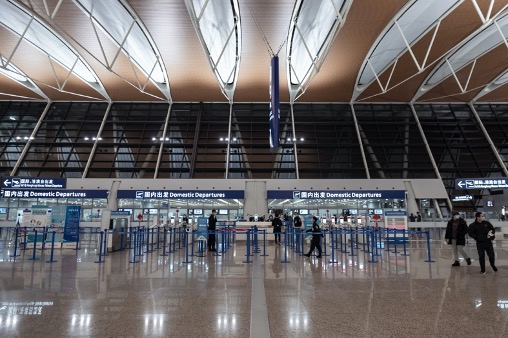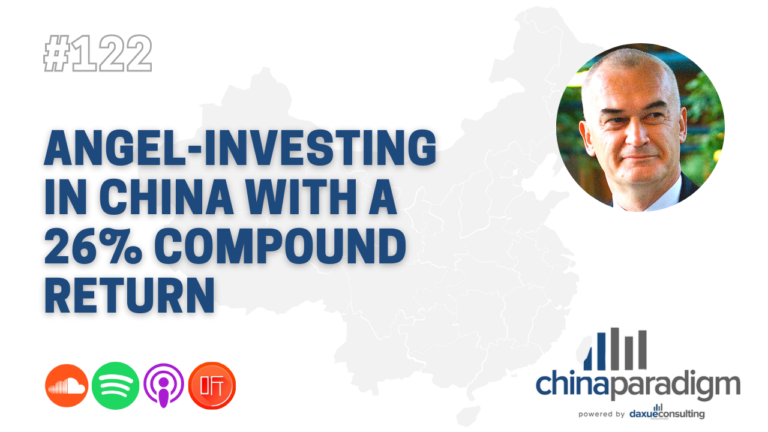Flight compensation for Chinese passengers
China Paradigm interviewed Sophie Sun, founder of TravelRight, to discuss China’s tourism ecosystem and how her company is claiming flight compensation for Chinese passengers to Europe.
Chinese tourism in Europe: a promising market with many delays
Recent statistics published by China Tourism Academy have shown that with a year on year surge of almost 15% in the first half of 2019, the Chinese overseas travel industry continues its steady growth. After the evident domination of the Asian continent that represents 80% of the travel destinations, Europe occupies the first landing place with more than 10% of market share while the Americas and Oceania only share 4% and 3% of the cake respectively (learn more about Chinese outbound travel).

According to Sophie Sun, among these Chinese overseas travel to Europe, 1.5 to 2% of travelers have the misfortune to see their flight being canceled or delayed. Unaware of their rights or simply unable to deal with the complexity of filing a claim for compensation, their rights often remain unexecuted. That is exactly where TravelRight operates, by claiming compensation for Chinese passengers and by taking a 30% fee in case of success. With compensations amounting up to €600 and Chinese tourism in Europe gaining popularity, the industry will undoubtfully encounter increasing success in the future.
China’s travel ecosystem: the domination of OTAs and the popularity of insurances
With the opening of the country and the increasing number of travelers inside and outside the borders, China’s travel ecosystem has developed drastically over the last years. Its own ecosystem composed by OTAs, insurances, airlines, and numerous other players continues to grow, and a hierarchy where OTAs play the big role seems to emerge. Our guest explains that more than 70% of travelers book their flights via OTAs in China. Accordingly, collaborating with OTAs to claim flight compensation for Chinese passengers is essential. TravelRight thus mainly follows a B2B2C model which helps them to reach the customers with limited efforts.
“Delay insurance is super popular in China. Travelers have a high chance to travel out with a delayed flight. So, they must buy insurance to protect themselves. So, every time while we are talking to passengers, telling them we have a solution to get their compensation, the first question they ask is how much they have to pay in advance.”
In this ecosystem, Chinese customers are used to taking insurance as a response to the many delays observed in China. Sophie Sun explains that her business model surprises many customers that are not used to receive a service for free.

Crisis management for Chinese companies: stay united and trustful
During and after the coronavirus outbreak, most managers around the world have to find new solutions to keep their business running while complying with the newly imposed regulations (learn more about the virus’s impact on China’s economy).
« Do not be afraid to talk about your fear to the team because if you don’t talk about it now, one day you realize that you are going to hurt someone in the last moment. I think sometimes we need to let people know in advance.»
Sophie Sun explains how she managed her company during the beginning of the outbreak and how crisis management for Chinese companies has been applied. Despite the work taking place remotely, Sun explains that she realized how important it was to be united. According to the entrepreneur, her team has thus been able to deal with stress and new challenges more effectively. She also explains how important it is to keep the promises and trust in the employees during this period. Accordingly, she offered promotions as planned and tried to keep the whole team on the boat (learn more about crisis management in China during the pandemic).
“We have to face the reality that Europe starts to have the Coronavirus. At this moment I trust my team who also understands the situation. They are willing to do temporary sacrifices in terms of salary in order to let the company survive.”
Reading on China-EU business: Using Chinese mobile payment methods to facilitate trade between China and Europe
Listen to this episode here:










